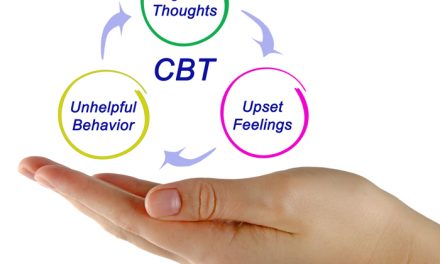Who Are the People in Your Neighborhood?
If you are a Sesame Street fan, you probably remember a song called “The People in Your Neighborhood.” Each segment featuring the catchy tune introduces viewers to the various kinds of people they might encounter in their neighborhood. A fireman, for example, or a baker or a veterinarian or a window washer or…well, you get the idea.
The song introduces kids to all kinds of different jobs while explaining how those jobs and the people who do them make the community a better place for everyone.
What does this have to do with recovery from a substance use disorder? Well, we would argue that you need to fill your “neighborhood”—that is, you need to surround yourself—with people who will support your ongoing recovery efforts.
On the flip side, you do not want to spend your time with anyone who is not supportive of your sobriety. Letting these sorts of folks into your “neighborhood” puts your hard-won sobriety at ongoing risk.
Let’s take a look at the differences between your good and bad “neighbors.”
Good Neighbors Always Lift You Up
One of the many reasons it is so important to attend 12-Step or other recovery program meetings regularly is that they are filled with people who truly understand what you have been through and what you are going through now. That sort of understanding is priceless.
But, of course, the relationships you form in recovery meetings are just a subset of all the people you spend time with. Your family, friends, coworkers, and others are going to be a part of your day-to-day life. For the sake of your sobriety, you want to spend the vast majority of your time with the people who lift you up and make you feel good about yourself and your recovery efforts.
In some cases, that support might come from people—like close friends and family—who know about your struggles. These are the folks you can call when you are struggling. They are the people who are happy to spend time with you in substance-free environments.
In other cases, the people who lift you up might not know anything about your substance use disorder. These are people who you simply enjoy being around. Maybe you have shared interests or get along well at work. Maybe they are simply kind by nature.
When you fill your “neighborhood” with these sorts of people, you are firming up the foundations of your sobriety.
Bad Neighbors Are a Drag—and Dangerous
Every neighborhood seems to have a crank or two. These are the people who call the city to complain about the length of your grass or who start arguments at neighborhood association meetings. It can be hard to avoid them entirely, but you aren’t likely to invite them into your circle of friends.
When it comes to your recovery “neighborhood,” keeping the cranks at arm’s length is a good idea. That includes anyone you associate with your former substance use. Obviously, hanging around with people who are still using drugs or alcohol—and who are likely to encourage you to, as well—is not a good idea when you are working to stay sober.
But this group of bad neighbors also includes anyone who tears you down—whether due to thoughtlessness or unkindness. This includes people who might insist on reminding you of things you regret from your time using drugs or alcohol or people who suggest that you will not be able to stay sober over time. It also includes anyone who is simply hard to get along with or who seems to criticize you unduly no matter the situation.
These people don’t make your “neighborhood” more pleasant—and they don’t help you shore up your sobriety.
In Our Neighborhood, We’re All About Your Sobriety
At The Aviary Recovery Center, located near Wichita, Kansas, we help individuals who are struggling with drugs or alcohol regain and maintain their sobriety. We are also equipped to treat co-occurring mental health disorders—like anxiety, depression, or disorders grounded in traumatic experiences—that may be entangled with a substance use disorder.
Our inpatient program includes medically supervised detoxification as well as a robust rehabilitation program that includes individual and group therapy sessions. We provide each person with a personalized treatment plan, strategies for staying sober, and information about how to access helpful resources in recovery. We follow all of that up with our aftercare programs, which are designed to help you start your recovery journey with confidence.
We also offer outpatient and virtual treatment options for those who might be better served by those approaches. Our goals remain the same no matter which treatment option you choose: getting you sober and helping you stay that way.
If you are ready to make a significant change for the better, we are ready to help you reach your goal of a life free from drugs or alcohol.










